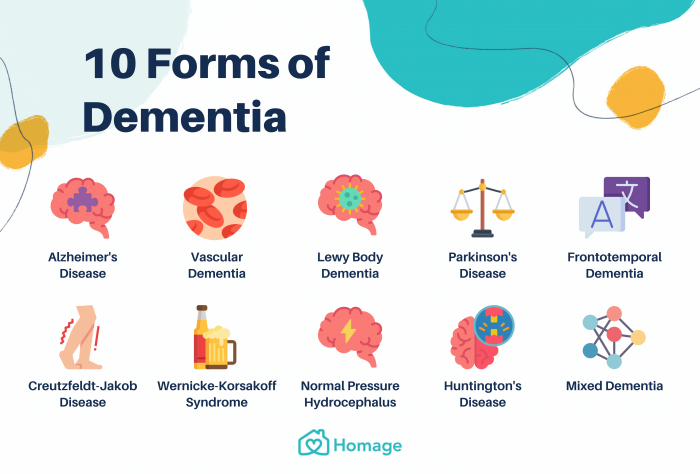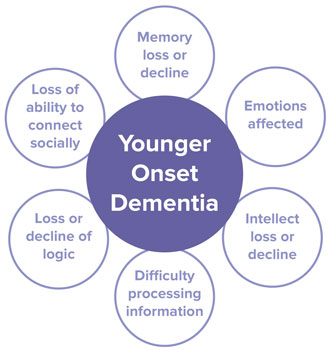Childhood Dementia: Understanding, Impact, and Hope for a Better Future
Childhood is often seen as a time of innocence, exploration, and boundless imagination. However, for some children and their families, this period can be marred by a devastating condition known as childhood dementia. In this blog, we will delve into the intricate world of childhood dementia, We will explore its types, causes, symptoms, diagnosis, treatment, and the emotional impact it has on families.
Introduction
Childhood dementia is a rare and heartbreaking condition that robs children of their cognitive abilities and memory. Unlike dementia in older adults, childhood dementia affects kids, who are just beginning their journey in life. This article aims to shed light on this condition and offer insights into its complexities.

Defining Childhood Dementia
Childhood dementia, also known as pediatric neurodegenerative disease, is a group of rare genetic disorders that lead to the progressive loss of cognitive and motor skills. These disorders can manifest in infancy, childhood, or adolescence, causing a profound decline in a child’s abilities.
Types of Childhood Dementia

There are various types of childhood dementia, each with its unique characteristics and genetic origins. We will explore some of the most common types, such as Neuronal Ceroid Lipofuscinosis (NCL) and Rett Syndrome, and discuss their distinguishing features.
Causes of Childhood Dementia
Childhood dementia, also known as pediatric neurodegenerative disease, is a condition that arises from a variety of factors, including genetics, metabolic abnormalities, and environmental influences.
- Genetic Factors: Many cases of childhood dementia are linked to genetic mutations. These mutations can affect genes responsible for normal brain development and function. For example, Neuronal Ceroid Lipofuscinosis (NCL), a type of childhood dementia, has several genetic forms, each caused by a different mutated gene.
- Metabolic Abnormalities: Some children may develop dementia due to metabolic disorders that affect how their bodies process and store essential nutrients. This can lead to toxic substances accumulating in the brain, causing damage over time.
- Environmental Influences: Environmental factors, such as exposure to toxins or infections during pregnancy or early childhood, can also contribute to the development of childhood dementia in some cases. These factors may disrupt normal brain development and function.
- Degenerative Processes: Childhood dementia often involves the degeneration of brain cells and structures. This degeneration can result from a combination of genetic and environmental factors. Over time, these processes lead to the loss of cognitive and motor skills in affected children.
- Rare Genetic Syndromes: Some childhood dementias are associated with rare genetic syndromes like Rett Syndrome. These syndromes can disrupt the normal development of the nervous system and lead to cognitive decline.
Understanding the causes of childhood dementia is crucial for early diagnosis and intervention. It allows healthcare professionals to tailor treatment and support to the specific needs of each child, potentially improving their quality of life and the management of their condition.
Early Signs and Symptoms

Recognizing the early signs and symptoms of childhood dementia is challenging but essential. The specific indicators may vary depending on the type of childhood dementia a child has, but some common warning signs to watch for include:
- Behavioral Changes: Children with early-stage dementia may exhibit unusual behavioral changes. This can include increased irritability, mood swings, aggression, or withdrawal from social interactions. These changes are often uncharacteristic of the child’s typical behavior.
- Regression: One of the most concerning signs is a noticeable regression in developmental milestones. A child who was previously meeting developmental milestones, such as walking, talking, or potty training, may start to lose these skills.
- Loss of Motor Skills: Childhood dementia can lead to a decline in motor skills. A child may have difficulty with tasks they previously handled with ease, such as feeding themselves, grasping objects, or maintaining balance.
- Language and Communication Issues: A child may experience a loss of language skills, including difficulty forming words, phrases, or sentences. Communication may become challenging, and the child may struggle to express themselves.
- Seizures: Some types of childhood dementia are associated with seizures, which can be a significant early symptom. These seizures may vary in type and severity.
- Cognitive Decline: As dementia progresses, a child’s cognitive abilities decline. They may have trouble with memory, problem-solving, and understanding instructions. Learning new information becomes increasingly difficult.
- Vision and Hearing Problems: Children with certain types of childhood dementia may develop vision or hearing impairments. These issues can contribute to further cognitive and developmental challenges.
- Loss of Social Skills: Childhood dementia can lead to a child becoming socially withdrawn. They may lose interest in activities they once enjoyed and have difficulty connecting with others.
Diagnosis and Screening
Diagnosing childhood dementia can be a complex and challenging process due to its rarity and diversity. However, it is essential to obtain an accurate diagnosis to initiate appropriate treatment and support. Here’s an overview of the diagnostic and screening procedures:
- Clinical Evaluation: The diagnostic journey typically begins with a comprehensive clinical evaluation conducted by a pediatrician or neurologist. The healthcare professional assesses the child’s medical history, developmental milestones, and any noticeable behavioral or physical changes.
- Genetic Testing: Genetic testing is a crucial component of the diagnostic process. Many childhood dementia cases have a genetic basis. Various genetic tests, such as DNA sequencing and microarray analysis, can identify specific mutations associated with the condition. This genetic information helps confirm the diagnosis and may guide treatment decisions.
- Neuroimaging: Neuroimaging techniques, such as magnetic resonance imaging (MRI) and computed tomography (CT) scans, are used to visualize the brain’s structure and identify any abnormalities or atrophy. These images can provide valuable insights into the underlying causes of childhood dementia.
- Electroencephalogram (EEG): An EEG measures the electrical activity in the brain and can help identify abnormal brain patterns, especially in cases where seizures are a prominent symptom.
- Metabolic Testing: Some forms of childhood dementia are linked to metabolic abnormalities. Blood and urine tests can identify issues with nutrient processing and metabolic function, aiding in diagnosis.
- Developmental Assessment: Child psychologists and developmental specialists may conduct assessments to measure cognitive, motor, and social development. These assessments help determine the extent of developmental regression.
Screening for childhood dementia often involves a multi-disciplinary team, including pediatricians, neurologists, genetic counselors, and developmental specialists. Early diagnosis is crucial, as it allows for the timely initiation of therapies and interventions that can enhance the child’s quality of life and support their specific needs.
read more about Alzheimer’s Warning Signs: Understanding Memory Loss
The Emotional Impact on Families
Childhood dementia not only affects the child but also has a profound emotional impact on their families. We’ll discuss the stress, grief, and coping mechanisms that parents and siblings often face.
Treatment and Management

While childhood dementia has no cure, there are various treatments and management strategies that can help improve the child’s quality of life and alleviate symptoms. Here’s an overview of the approaches used:
- Symptomatic Management: Treatment primarily focuses on managing symptoms. Medications may be prescribed to address specific issues such as seizures, anxiety, or sleep disturbances. These drugs aim to enhance the child’s comfort and well-being.
- Physical and Occupational Therapy: Physical and occupational therapy can help children maintain or regain motor skills and mobility. Therapists work on exercises and activities tailored to the child’s abilities and needs.
- Speech and Language Therapy: Children with childhood dementia often experience speech and language difficulties. Speech therapists provide strategies to improve communication, including the use of alternative communication devices.
- Behavioral Interventions: Behavioral therapy can assist in managing behavioral changes, reducing aggression, and addressing social withdrawal. It focuses on positive reinforcement and coping strategies.
- Nutritional Support: Some children with childhood dementia may have difficulty eating and swallowing. Nutritional support from a dietitian can help ensure they receive adequate nutrition, either through modified diets or feeding tubes if necessary.
- Psychological Support: Both the child and their family benefit from psychological support. Counseling and therapy can help families cope with the emotional challenges of childhood dementia, fostering resilience and emotional well-being.
- Educational Support: Many children with dementia require tailored educational plans. Special education services can address their unique learning needs and help them reach their full potential.
- Clinical Trials: In some cases, participation in clinical trials may be an option, especially if new therapies or interventions are under investigation. These trials contribute to our understanding of childhood dementia and may offer new treatment possibilities.
Coping Strategies for Caregivers
Caring for a child with dementia can be emotionally and physically demanding. Caregivers often find solace in seeking support from professionals, joining caregiver support groups, and practicing self-care. These coping strategies help caregivers manage the stress and provide the best possible care for their loved ones.
Challenges in Research and Awareness
Research into childhood dementia faces significant challenges, including limited funding and the rarity of the condition. Raising awareness is equally daunting but crucial for improving early diagnosis and care. Advocacy, collaboration, and increased funding are essential to overcome these obstacles and make progress in understanding and managing childhood dementia.
Supporting Organizations
Several organizations and foundations are dedicated to advancing research, providing support, and raising awareness of childhood dementia. Some prominent organizations include the National Niemann-Pick Disease Foundation, the Rett Syndrome Research Trust, and the Batten Disease Support and Research Association. These organizations work tirelessly to offer resources, funding, and a sense of community for affected children and their families.
Conclusion
In conclusion, childhood dementia is a devastating condition that affects not only the child but also their entire family. However, with increased awareness, research, and support, there is hope for a better future for these young individuals. Together, we can strive to provide them with the care and understanding they deserve.
FAQs
- What is childhood dementia? Childhood dementia, also known as pediatric neurodegenerative disease, is a group of rare genetic disorders that lead to the progressive loss of cognitive and motor skills in children.
- What are the early signs of childhood dementia? Early signs may include subtle changes in behavior, motor skills, and communication, which can serve as red flags for parents and caregivers.
- Is childhood dementia curable? Currently, there is no cure for childhood dementia, but various treatments and therapies can help manage the symptoms.
- How can families cope with the emotional impact of childhood dementia? Coping strategies and support networks are essential for families dealing with childhood dementia. Seeking professional help can also be beneficial.
- How can I contribute to childhood dementia research and awareness? You can support organizations dedicated to childhood dementia research and raise awareness by sharing information and resources within your community.







 Viesearch - The Human-curated Search Engine
Viesearch - The Human-curated Search Engine
